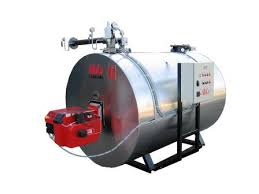
Dec . 05, 2024 14:01 Back to list
steam boiler for sale
Exploring the Market for Steam Boilers A Comprehensive Guide
In the industrial sector, steam boilers play a crucial role in providing a reliable source of steam for various applications. These versatile machines are widely used across different industries, including power generation, food processing, chemical manufacturing, and more. As the demand for efficient and eco-friendly energy solutions continues to rise, the market for steam boilers has expanded significantly. This article delves into the various types of steam boilers available for sale, their applications, and key factors to consider when purchasing one.
Types of Steam Boilers
There are several types of steam boilers that can be found on the market, each catering to specific needs and requirements
1. Fire-Tube Boilers These are the most common type of boiler where hot gases pass through tubes surrounded by water. They are known for their simplicity, efficiency, and ability to produce steam quickly. Fire-tube boilers are suitable for small to medium steam requirements.
2. Water-Tube Boilers Contrary to fire-tube boilers, water-tube boilers have water-filled tubes that are heated by the flue gases. These boilers are capable of producing high-pressure steam and are typically used in larger industrial applications due to their efficiency and adaptability.
3. Electric Boilers These boilers use electricity to generate steam, making them suitable for areas where electric power is readily available. Electric boilers are compact, easy to control, and often used for small-scale applications.
4. Biomass Boilers As industries move towards sustainable energy solutions, biomass boilers have gained popularity. They use organic materials like wood pellets or agricultural waste as fuel, reducing reliance on fossil fuels and minimizing carbon footprints.
5. Waste Heat Recovery Boilers These boilers utilize waste heat from other processes to generate steam, enhancing overall energy efficiency. They are particularly valuable in manufacturing environments where excess heat is generated.
Applications of Steam Boilers
Steam boilers serve various purposes across multiple industries, including
steam boiler for sale

- Power Generation Boilers are essential in power plants for generating steam that drives turbines. - Food Processing Steam is used for cooking, sterilization, and cleaning processes in the food industry. - Chemical Manufacturing Steam boilers provide the necessary heat for chemical reactions and processes. - Heating Many buildings rely on steam boilers for heating systems, especially in colder climates. - Textile Industry Steam is used for dyeing, finishing, and other processes in textile manufacturing.
Factors to Consider When Purchasing a Steam Boiler
When looking for a steam boiler for sale, there are several key factors to consider
1. Capacity Determine the required steam output for your specific application. Boilers come in various sizes and capacities, so it’s essential to choose one that meets your operational demands.
2. Fuel Type Consider the available fuel sources; whether you prefer natural gas, biomass, or electric-based boilers, choose one that aligns with your sustainability goals and logistics.
3. Efficiency Look for boilers with high thermal efficiency ratings to reduce fuel costs and environmental impact. Investing in advanced models can lead to significant long-term savings.
4. Compliance with Regulations Ensure that the boiler meets local regulations and standards for safety and emissions. This will help avoid legal issues and promote operational safety.
5. Maintenance and Support Choose a supplier who offers good customer support, maintenance services, and warranty options. Regular maintenance is crucial for the longevity and efficiency of the boiler.
Conclusion
The steam boiler market offers a wide range of options suitable for various industrial applications. Whether you are looking for efficiency, sustainability, or cost-effectiveness, there is a steam boiler that meets your needs. Before making a purchase, it is essential to evaluate the specific requirements of your operations and consider factors such as capacity, fuel type, and compliance with regulations. By doing so, you can ensure that you invest in a steam boiler that not only serves your present needs but also supports your long-term operational goals.
-
High-Efficiency Commercial Oil Fired Steam Boiler for Industry
NewsJul.30,2025
-
High-Efficiency Biomass Fired Thermal Oil Boiler Solutions
NewsJul.30,2025
-
High Efficiency Gas Fired Thermal Oil Boiler for Industrial Heating
NewsJul.29,2025
-
High-Efficiency Gas Fired Hot Water Boiler for Sale – Reliable & Affordable
NewsJul.29,2025
-
High Efficiency Biomass Fired Hot Water Boiler for Industrial and Commercial Use
NewsJul.29,2025
-
High-Efficiency Biomass Fired Hot Water Boiler for Industrial Use
NewsJul.28,2025
Related PRODUCTS






















